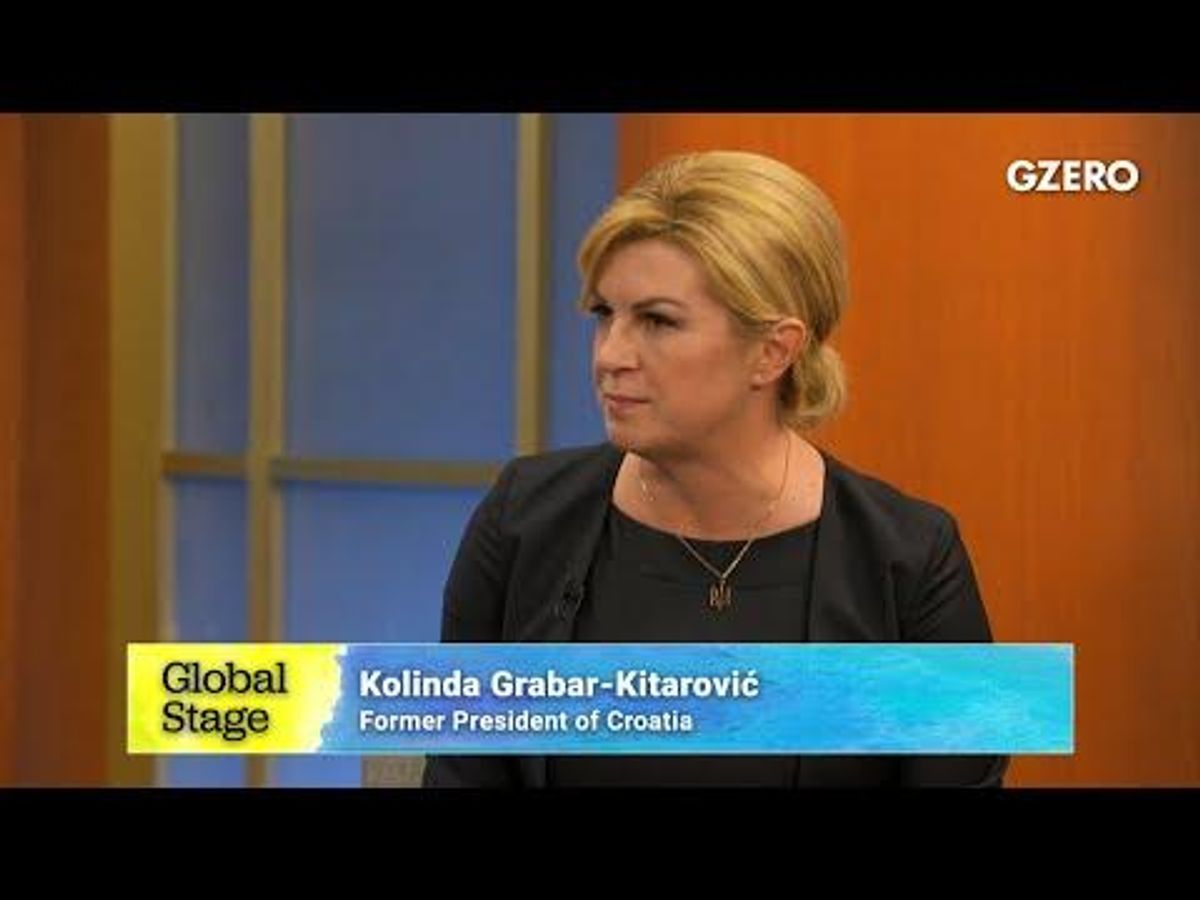Putin would rather die than admit defeat in Ukraine, says former Croatian president
Kolinda Grabar-Kitarović knows a thing or two about Vladimir Putin, who she met multiple times when she was Croatia's president. So, how does she see the future of Russia's war in Ukraine?
It's not looking good.
In a Global Stage livestream conversation held at United Nations headquarters, Grabar-Kitarović says that Putin is unlikely to back down from a "special military operation" driven by what the Russian leader sees as Western humiliation during the Cold War.
Although the war has weakened Russia's economy and military and made the country a junior partner to China, the former Croatian president thinks Putin “would rather die than admit defeat."
Since Ukraine will also not cede an inch of sovereign territory, Grabar-Kitarović believes the fighting will continue. And a ceasefire won't stop Putin from trying to realize his ultimate ambition of taking over all of Ukraine.
- Putin improves his hand in Ukraine - GZERO Media ›
- Putin, Ukraine, and the Rat Story - GZERO Media ›
- Risks of Russia losing: Putin, Ukraine, and potential for escalation ... ›
- Russia struggles in Ukraine, Putin escalates - GZERO Media ›
- Putin cornered - GZERO Media ›
- Finland “investing in security and stability” with NATO push - GZERO Media ›
- One year in: Ukraine war will last as long as Putin is in power - GZERO Media ›


















